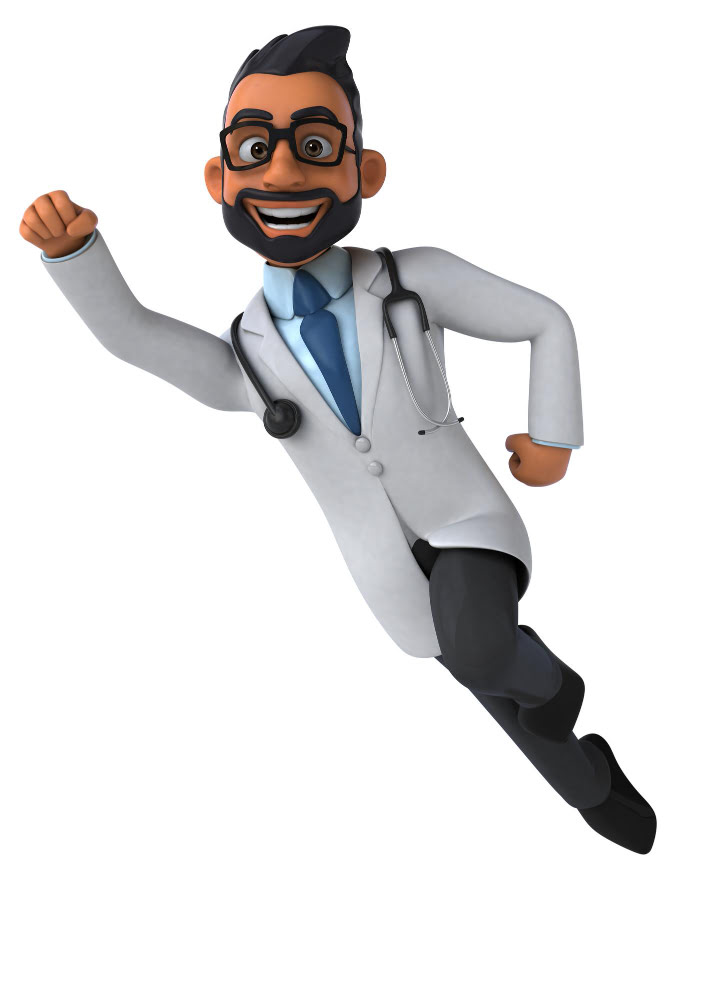|
|
Blog Summary
Introduction
In the world of career choices, few paths are as revered and life-altering as that of medicine. Pursuing a career in medicine is an aspiration many harbours, driven by the promise of prestige, the chance to impact society profoundly, and personal fulfilment. However, the gravity of this decision cannot be overstated, as the path to becoming a healthcare professional is rigorous and demanding. Hence, making the right career choice is of paramount importance.
In this article, we will explore the factors to consider when deciding if medicine is the right career for you, helping you make an informed choice that aligns with your passions and strengths. Whether you are a prospective medical student or contemplating a shift in your career, the journey to answering the question, “Is medicine the right career for me?” begins here.
The Allure of a Medical Career
A career in medicine is undeniably alluring, offering a unique blend of prestige and unparalleled rewards. As medical professionals, doctors hold esteemed positions in society, enjoying their patients’ and communities’ trust and respect. They want this status not only because of their vast education and experience but also because they contribute significantly to preserving and enhancing human existence. The influence that doctors have on society is enormous. Whether it is diagnosing an illness, performing life-saving surgeries, or simply offering comfort and care, doctors are the front-line heroes. Medical career guidance plays a pivotal role in helping individuals navigate the allure of a medical career by offering insights into the esteemed positions, responsibilities, and societal impact of doctors.

Self-Assessment
Self-assessment plays a pivotal role in making informed career decisions, and it is no exception for the medical profession. By actively evaluating your aspirations, strengths, and weaknesses, you can ascertain whether a medical career aligns with your long-term goals. To embark on this crucial self-examination, consider the following list of questions as a starting point:
- Are you genuinely passionate about healthcare and helping others?
- Can you handle the emotional demands of dealing with patients in critical situations?
- Are you prepared for the extensive and rigorous educational journey to become a doctor?
- Do you possess strong problem-solving and necessary thinking skills?
- How do you handle stress and long working hours?
- Are you comfortable with the financial investments and potential student loan debt associated with medical education?
- What medical specialities interest you, and why?
Performing a comprehensive self-assessment will guide you toward a more fulfilling career choice and ensure that you embark on a medical path that truly resonates with your aspirations and abilities.
Educational and Training Requirements
The path to becoming a doctor typically involves rigorous educational and training requirements. Aspiring doctors start with a bachelor’s degree in a relevant field, often in the sciences, followed by the completion of medical school. Medical school typically spans four years and includes classroom instruction and firsthand clinical experience. After obtaining a medical degree, the journey continues with a residency program, lasting anywhere from three to seven years, depending on the chosen specialty. This phase allows future doctors to gain specialized knowledge and practical skills.
Upon residency completion, individuals must pass licensing exams to practice medicine independently. For those who might not envision themselves as doctors but still wish to pursue a healthcare career, there are numerous alternative healthcare professions to consider, such as nursing, physician assistant, physical therapy, or medical laboratory technology. In pursuing a medical career in Africa, it’s essential to understand the demanding educational and training requirements that aspiring doctors must meet, from obtaining a bachelor’s degree to completing a medical residency.
Skills and Qualities Required
In a career as demanding and gratifying as medicine, possessing specific essential skills and qualities can make all the difference. Here are key attributes that are crucial for success:
Empathy: The ability to empathize with patients is paramount. It allows healthcare professionals to connect on a human level, understand patient concerns, and provide more effective care.
Critical Thinking: Medicine often presents complex, ever-changing scenarios. Necessary thinking skills are vital for diagnosing conditions, making quick decisions, and adapting to unexpected situations.
Communication Skills: Effective communication is key. Medical professionals must convey complex medical information to patients and collaborate with multidisciplinary teams.
Diligence: The medical field leaves no room for error. Diligence is crucial in tasks like interpreting test results, administering medications, and documenting patient information.
When considering a medical career, it is essential to honestly assess your strengths and weaknesses. Reflect on how well these skills align with your natural abilities and personal inclinations. While weaknesses can be improved through education and experience, having a solid foundation in these skills and qualities will help you thrive in the challenging world of medicine.
Lifestyle Considerations
A career in medicine is undoubtedly prestigious, but it comes with a demanding nature that requires individuals to grapple with long hours and high-stress levels. The healthcare field operates around the clock, and medical professionals often find themselves working extended shifts and being on-call, especially during residency or in certain specialties. This rigorous schedule can affect one’s work-life balance, impacting relationships and overall well-being.

Those thinking about a career in medicine should give it significant thought because it can be challenging to strike that fine balance between work and personal responsibilities. In such demanding roles, managing stress and maintaining a fulfilling personal life becomes an essential skill for those embarking on this journey. Considering the demanding nature of a medical career, it’s crucial to prioritize stress management and work-life balance, skills essential for those embarking on this journey. If you’re curious about why so many choose medicine as their career path, we invite you to explore our blog “Why Many Choose Medicine as Their Career Path?” to gain further insights into this prestigious profession.
Exploring Specializations
When embarking on a medical career, it is crucial to understand the significance of exploring various medical specializations. Specialization allows you to fine-tune your expertise and ensures that you find a niche that aligns with your interests and aptitude. Here is a closer look at why and how to explore these diverse medical fields:
Broaden Your Horizons: Exploring specializations broadens your horizons, exposing you to various medical disciplines. This firsthand exposure is essential to make an informed choice.
Match Your Interests: Discovering different specializations helps you identify what interests you. Whether it is surgery, paediatrics, or cardiology, your passion will drive your medical career.
Assess Your Aptitude: Specializations have unique demands, and assessing your aptitude for each is vital. Few fields require strong analytical skills, while others rely on exceptional interpersonal communication. Knowing your strengths will help you make a wise choice.
Career Longevity: The right specialization can contribute to a fulfilling and sustainable career. Specializing in a field you love will keep you motivated and engaged throughout your medical journey, benefiting you and your patients.
Seek Guidance
When contemplating a career in medicine, seeking guidance is paramount. Consulting with experienced mentors, resolute career counsellors, or seasoned healthcare professionals can provide invaluable insights and direction. They can offer firsthand knowledge of the challenges and rewards associated with the medical field, helping you make an informed decision. Additionally, do not underestimate the power of networking and connecting with professionals in the healthcare industry.
Making these contacts can help you gain an excellent grasp of the details of the industry. It opens doors to internships, shadowing opportunities, and advice on which medical specialization suits your skills and interests.
Conclusion
In career choices, pursuing a career in medicine is profoundly essential. While it offers prestige, societal impact, and personal fulfilment, it also demands rigorous dedication. Self-assessment, understanding the educational requirements, and evaluating personal skills and qualities are essential to make an informed choice. Moreover, recognizing the demands on your lifestyle and exploring alternative healthcare careers are pivotal considerations. Deciding if medicine is your calling does not have to be navigated alone. Seek guidance from mentors and network within the healthcare community.
The path to answering, “Is medicine the right career for me?” is personal and transformative, and your decision will shape a future dedicated to the betterment of others.



34 Comments. Leave new
**mindvault**
mindvault is a premium cognitive support formula created for adults 45+. It’s thoughtfully designed to help maintain clear thinking
**prostadine**
prostadine is a next-generation prostate support formula designed to help maintain, restore, and enhance optimal male prostate performance.
**sugarmute**
sugarmute is a science-guided nutritional supplement created to help maintain balanced blood sugar while supporting steady energy and mental clarity.
**glpro**
glpro is a natural dietary supplement designed to promote balanced blood sugar levels and curb sugar cravings.
**zencortex**
zencortex contains only the natural ingredients that are effective in supporting incredible hearing naturally.
**mitolyn**
mitolyn a nature-inspired supplement crafted to elevate metabolic activity and support sustainable weight management.
**prodentim**
prodentim an advanced probiotic formulation designed to support exceptional oral hygiene while fortifying teeth and gums.
**vitta burn**
vitta burn is a liquid dietary supplement formulated to support healthy weight reduction by increasing metabolic rate, reducing hunger, and promoting fat loss.
**yu sleep**
yusleep is a gentle, nano-enhanced nightly blend designed to help you drift off quickly, stay asleep longer, and wake feeling clear.
**synaptigen**
synaptigen is a next-generation brain support supplement that blends natural nootropics, adaptogens
**nitric boost**
nitric boost is a dietary formula crafted to enhance vitality and promote overall well-being.
**glucore**
glucore is a nutritional supplement that is given to patients daily to assist in maintaining healthy blood sugar and metabolic rates.
**wildgut**
wildgutis a precision-crafted nutritional blend designed to nurture your dog’s digestive tract.
**pineal xt**
pinealxt is a revolutionary supplement that promotes proper pineal gland function and energy levels to support healthy body function.
**energeia**
energeia is the first and only recipe that targets the root cause of stubborn belly fat and Deadly visceral fat.
**prostabliss**
prostabliss is a carefully developed dietary formula aimed at nurturing prostate vitality and improving urinary comfort.
**breathe**
breathe is a plant-powered tincture crafted to promote lung performance and enhance your breathing quality.
**potentstream**
potentstream is engineered to promote prostate well-being by counteracting the residue that can build up from hard-water minerals within the urinary tract.
**hepatoburn**
hepatoburn is a premium nutritional formula designed to enhance liver function, boost metabolism, and support natural fat breakdown.
**hepatoburn**
hepatoburn is a potent, plant-based formula created to promote optimal liver performance and naturally stimulate fat-burning mechanisms.
**cellufend**
cellufend is a natural supplement developed to support balanced blood sugar levels through a blend of botanical extracts and essential nutrients.
**prodentim**
prodentim is a forward-thinking oral wellness blend crafted to nurture and maintain a balanced mouth microbiome.
**flow force max**
flow force max delivers a forward-thinking, plant-focused way to support prostate health—while also helping maintain everyday energy, libido, and overall vitality.
**neurogenica**
neurogenica is a dietary supplement formulated to support nerve health and ease discomfort associated with neuropathy.
**revitag**
revitag is a daily skin-support formula created to promote a healthy complexion and visibly diminish the appearance of skin tags.
**sleeplean**
sleeplean is a US-trusted, naturally focused nighttime support formula that helps your body burn fat while you rest.
**memorylift**
memorylift is an innovative dietary formula designed to naturally nurture brain wellness and sharpen cognitive performance.
Thanks for sharing. I read many of your blog posts, cool, your blog is very good. https://accounts.binance.com/es-MX/register?ref=GJY4VW8W
Yo, 8AceCasino’s my go-to spot for a quick game after work. They got a solid selection and the payouts are usually pretty fast. No complaints here! Check it out for yourself: 8acecasino
Alright, so I stumbled upon biabettelegram. Seems like a useful Telegram channel. If you’re into mention relevant topics based on assumption, e.g., sports betting tips, give it a look! biabettelegram
It’s fascinating how tech is reshaping gambling – transparency is key! Seeing platforms like jljl88 ph app casino utilize blockchain for provably fair games is a smart move, building trust where it’s often lacking. Interesting times!
E aí, galera! Descobri o QQ88Asia1 recentemente e tô de olho nos jogos deles. Alguém já experimentou? Queria saber se a experiência é boa antes de colocar minha grana. Dá uma olhada: qq88asia1
nổ hũ 66b có tính năng “lịch sử quay” – bạn có thể xem lại các vòng spin trước để phân tích và lên chiến lược hiệu quả. TONY12-30
Just spent a little time on 70bet2. It’s a pretty chilled-out vibe. If you are into the betting scene, you should visit our website now 70bet2! See whether you can win!